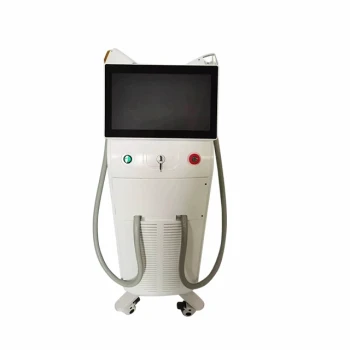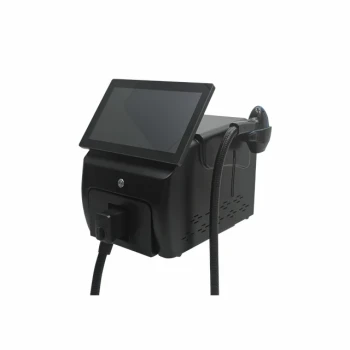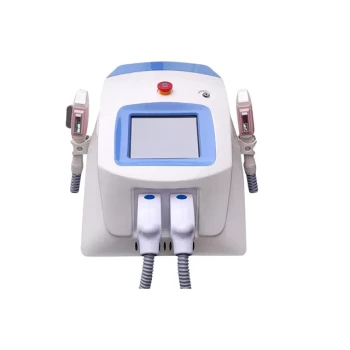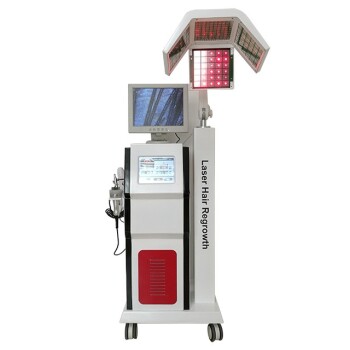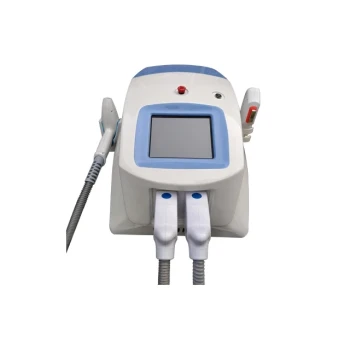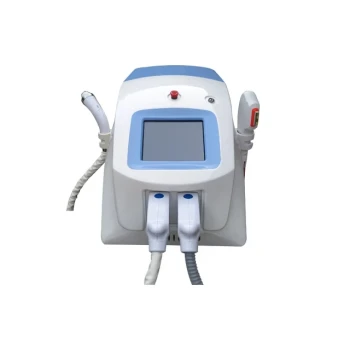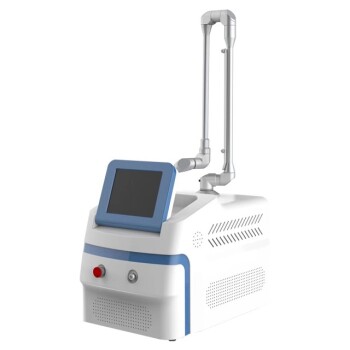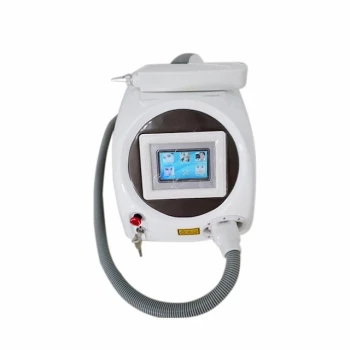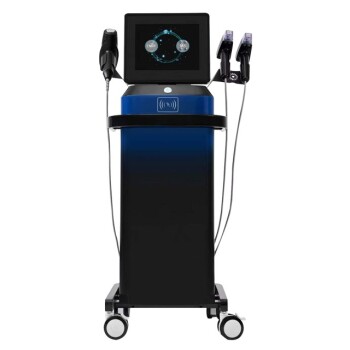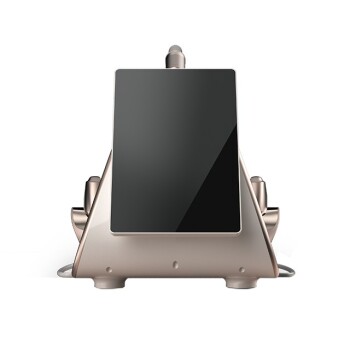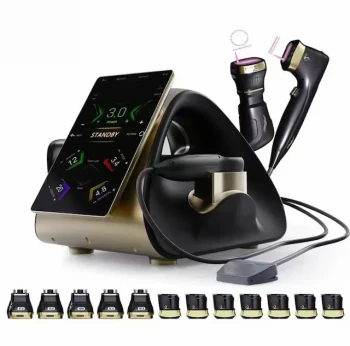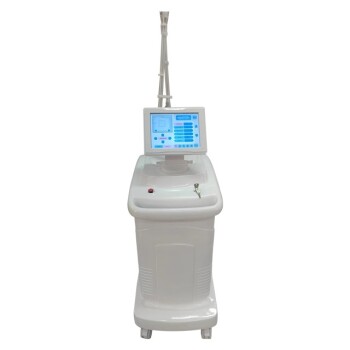In short, a diode laser is one of the most versatile hair removal technologies, proven effective for a broad range of skin types. It is considered safe for light skin, olive skin, and even many shades of darker skin, making it a widely applicable choice in clinical settings.
While many lasers are limited to lighter skin tones, the diode laser's specific wavelength allows it to safely bypass the pigment in the skin and target the melanin in the hair follicle. This makes it a reliable option for a wider spectrum of individuals, from Fitzpatrick types I through V.
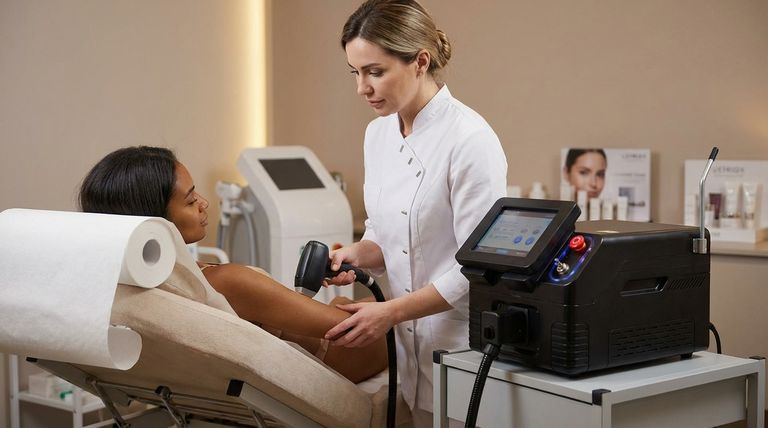
How Diode Lasers Target Hair
To understand why diode lasers are so versatile, you must first understand the mechanism. Laser hair removal works by sending a concentrated beam of light into the hair follicle, where the pigment (melanin) absorbs it.
The Role of Wavelength
The key to a diode laser's effectiveness is its wavelength, typically operating at 808nm or 810nm.
This wavelength is long enough to penetrate deep into the dermis and reach the base of the hair follicle. More importantly, it achieves a crucial balance: it is strongly absorbed by the melanin in the hair shaft but is less absorbed by the melanin in the surrounding epidermis (the top layer of skin).
Safety for Darker Skin Tones
Older or different types of lasers, like the Alexandrite (755nm), use a shorter wavelength. This shorter wavelength is more aggressively absorbed by melanin, making it highly effective for light skin but risky for darker skin, as the laser can't easily distinguish between pigment in the hair and pigment in the skin, increasing the risk of burns.
The diode laser's longer wavelength mitigates this risk, making it a much safer and more established option for individuals with more melanin in their skin.
Matching Diode to Fitzpatrick Skin Types
The Fitzpatrick scale is a dermatological standard for classifying skin color and its reaction to UV light. A trained practitioner will always assess your skin type before treatment.
For Light to Olive Skin (Fitzpatrick I-IV)
For these skin types, the diode laser is considered a gold standard. The high contrast between the dark hair and lighter skin allows the laser to easily identify and destroy the hair follicle with maximum efficiency and minimal risk.
For Brown Skin (Fitzpatrick V)
The diode laser is generally a safe and effective option for this skin type. Advanced diode laser systems have adjustable settings and cooling mechanisms specifically designed to protect darker skin, delivering energy effectively while keeping the epidermis safe.
For Very Dark Brown to Black Skin (Fitzpatrick VI)
While some modern, sophisticated diode lasers can be used on type VI skin, the Nd:YAG laser (1064nm) is typically considered the safest and most proven choice. Its even longer wavelength almost completely bypasses the epidermal melanin, making it the primary option for the darkest skin tones.
Understanding the Key Trade-offs
No technology is perfect. Acknowledging the limitations of diode lasers is essential for setting realistic expectations and ensuring safety.
The Critical Role of Hair Color
Laser hair removal targets melanin. Therefore, diode lasers are not effective on hair with little to no pigment, such as white, grey, light blonde, or light red hair. The laser simply has no target to absorb its energy.
The Danger of Treating Tanned Skin
Treating tanned skin—even with a "safe" diode laser—is risky. A tan is sun-induced skin damage that results in increased melanin in the epidermis. This excess melanin will compete with your hair follicle for the laser's energy.
This competition dramatically increases the risk of adverse effects like burns, blisters, and post-inflammatory hyperpigmentation (dark spots). A responsible technician will refuse to treat recently or heavily tanned skin.
Operator Skill is Non-Negotiable
The safety and effectiveness of a diode laser treatment are just as dependent on the technician's expertise as they are on the machine itself. An experienced, certified practitioner knows how to accurately assess skin type and adjust the laser's fluence (energy) and pulse duration to maximize results while ensuring your safety.
Making the Right Choice for Your Goal
Your specific skin type and goals should guide your decision.
- If your primary focus is treating light to olive skin (Types I-IV) with dark hair: The diode laser is an excellent, highly effective, and safe choice.
- If your primary focus is treating brown skin (Type V) with dark hair: An advanced diode laser in the hands of an experienced practitioner is a very strong and reliable option.
- If your primary focus is treating very dark skin (Type VI) with dark hair: You should prioritize finding a clinic that uses an Nd:YAG laser, as it is widely considered the safest technology for your skin tone.
- If your skin is currently tanned from sun exposure or a tanning bed: You must wait until the tan has completely faded before undergoing any laser treatment to avoid serious skin damage.
Ultimately, the key to successful treatment is a professional consultation to determine the ideal technology for your unique skin and hair combination.
Summary Table:
| Fitzpatrick Skin Type | Diode Laser Suitability | Key Considerations |
|---|---|---|
| I-IV (Light to Olive) | Excellent, Gold Standard | High contrast between hair and skin allows for maximum efficiency. |
| V (Brown) | Very Good, Safe Option | Requires advanced laser with adjustable settings and expert technician. |
| VI (Very Dark) | Limited, Use with Caution | Nd:YAG laser (1064nm) is generally the safer primary choice. |
Ready to find the perfect hair removal solution for your clinic's clients?
BELIS specializes in professional medical aesthetic equipment, including advanced diode laser systems designed for safety and efficacy across a wide range of skin types. We serve medical aesthetics clinics and premium beauty salons.
Our experts can help you select the right technology to expand your service offerings and ensure client safety and satisfaction.
Contact BELIS today for a personalized consultation and discover how our equipment can enhance your practice's results and reputation.
Visual Guide
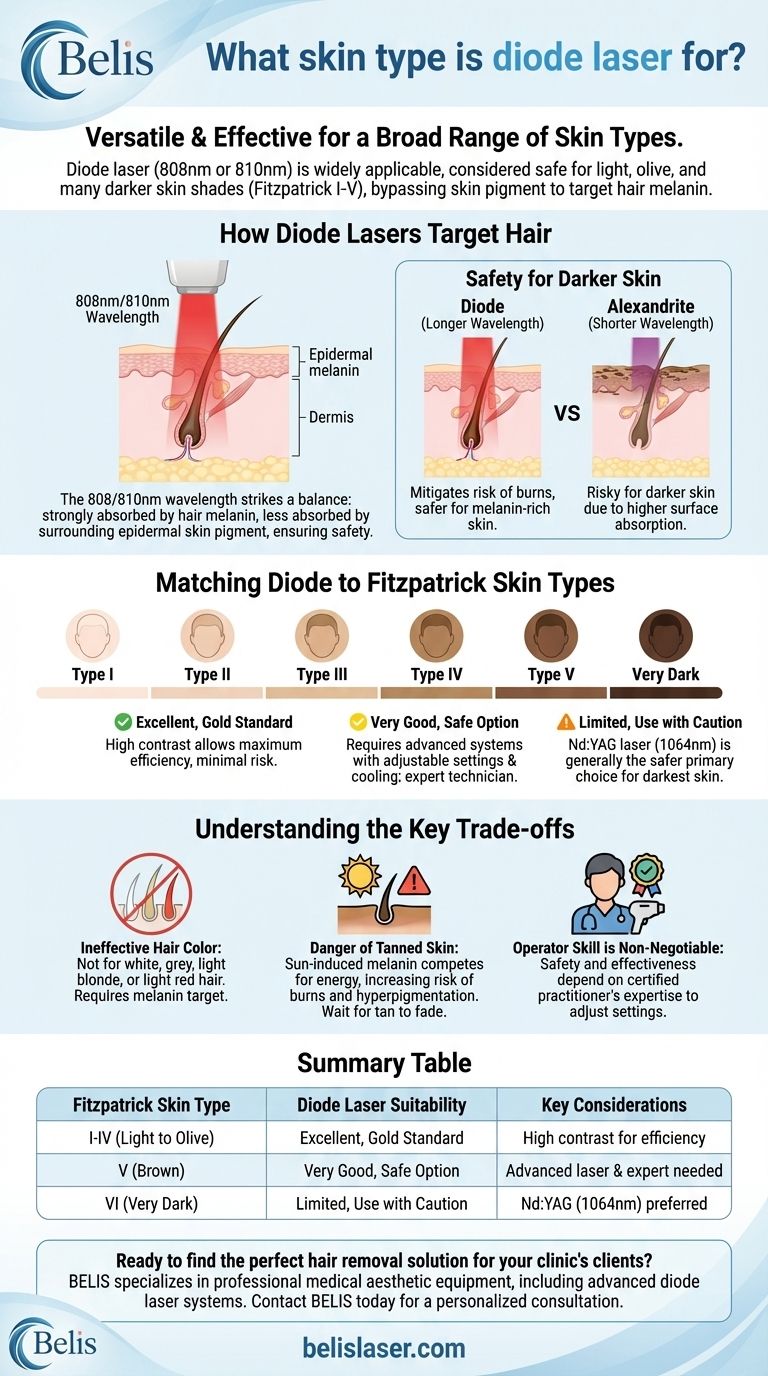
Related Products
- Diode Laser SHR Trilaser Hair Removal Machine for Clinic Use
- Diode Tri Laser Hair Removal Machine for Clinic Use
- Trilaser Diode Hair Removal Machine for Beauty Clinic Use
- Clinic Diode Laser Hair Removal Machine with SHR and Trilaser Technology
- IPL SHR Hair Removal Machine for Permanent Hair Removal
People Also Ask
- Which is better, an IPL or a diode laser? Unlock Precision for Permanent Hair Reduction
- Which hair removal method is considered better, the diode laser or IPL? Choosing the Superior Professional Technology
- How effective is diode laser hair removal? Achieve Long-Term Hair Reduction Safely
- Does diode laser remove hair permanently? Understanding Permanent Hair Reduction
- What are the disadvantages of diode laser hair removal? Key Limitations & Safety Risks Explained

